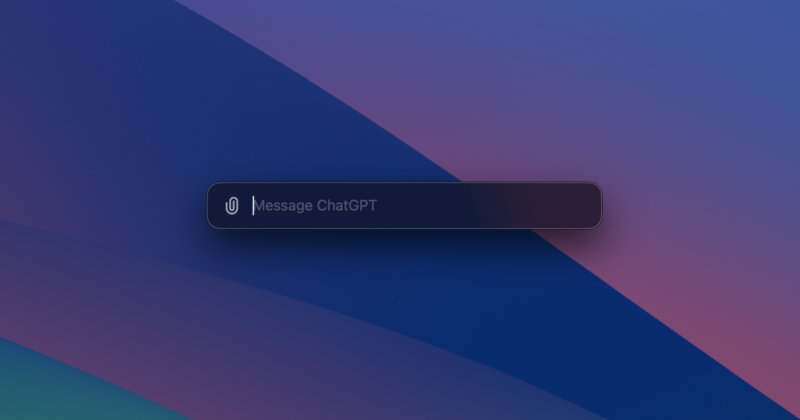Seriously? —
The app was updated to address the issue after it gained public attention.

Enlarge / The app lets you invoke ChatGPT from anywhere in the system with a keyboard shortcut, Spotlight-style.
Samuel Axon
OpenAI announced its Mac desktop app for ChatGPT with a lot of fanfare a few weeks ago, but it turns out it had a rather serious security issue: user chats were stored in plain text, where any bad actor could find them if they gained access to your machine.
As Threads user Pedro José Pereira Vieito noted earlier this week, “the OpenAI ChatGPT app on macOS is not sandboxed and stores all the conversations in plain-text in a non-protected location,” meaning “any other running app / process / malware can read all your ChatGPT conversations without any permission prompt.”
He added:
macOS has blocked access to any user private data since macOS Mojave 10.14 (6 years ago!). Any app accessing private user data (Calendar, Contacts, Mail, Photos, any third-party app sandbox, etc.) now requires explicit user access.
OpenAI chose to opt-out of the sandbox and store the conversations in plain text in a non-protected location, disabling all of these built-in defenses.
OpenAI has now updated the app, and the local chats are now encrypted, though they are still not sandboxed. (The app is only available as a direct download from OpenAI’s website and is not available through Apple’s App Store where more stringent security is required.)
Many people now use ChatGPT like they might use Google: to ask important questions, sort through issues, and so on. Often, sensitive personal data could be shared in those conversations.
It’s not a great look for OpenAI, which recently entered into a partnership with Apple to offer chat bot services built into Siri queries in Apple operating systems. Apple detailed some of the security around those queries at WWDC last month, though, and they’re more stringent than what OpenAI did (or to be more precise, didn’t do) with its Mac app, which is a separate initiative from the partnership.
If you’ve been using the app recently, be sure to update it as soon as possible.